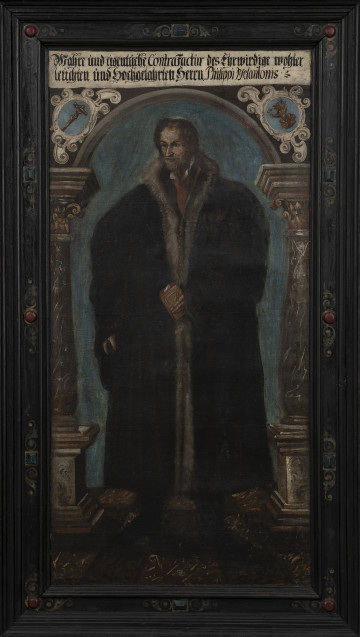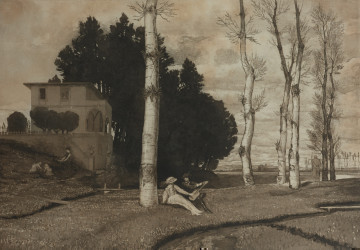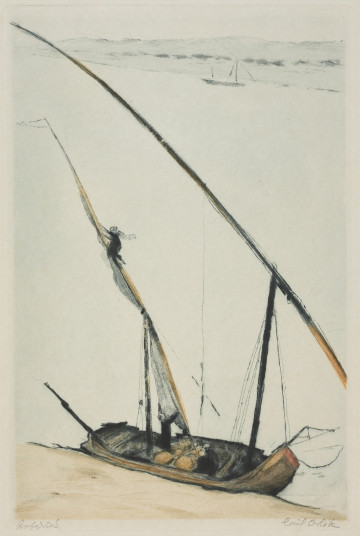
Portrait of Philip Melanchthon
circa 1560 — 1580
National Museum in Szczecin
Part of the collection: Graphics of German speaking countries
Emil Orlik's graphic depicts a young Chinese woman with a small child, which the artist observed in Shanghai. The form of the graphic refers to compositions whose subject was Madonna and Child. Both portrayed persons are wearing traditional Chinese clothes. The son is gazing solemnly into the face of his mother, whose lowered gaze seems to express deep thought. The woman is supporting the child with her right hand, while the extended index finger of her left hand is pointing in his direction. Like the Virgin Mary's, this gesture lends further credence to the association with the representation of the Madonna and Child. Orlik combined Far Eastern motifs with European compositional patterns.The graphic was performed using a mixed technique, etching, dry needle and roulette, in 1913 and rebound in green tone paint on pseudo-Japanese velin paper with the US watermark Strathmore Japan. It was published by the Vereinigung Freunde Graphischer Kunst (Association of Friends of Graphic Arts) in an annual folder (Jahresmappe) for 1913. The composition was one of the results of Orlik's interest in Far Eastern art and his stay in the Far East, especially Japan, where he learned graphic skills. Emil Orlik was born in 1870 in Prague and died in Berlin in 1932. He was a multifaceted artist. He created paintings, graphics, drawings, scenographies, photographs, and also taught. He began his education in 1889 in Munich as a painter, continuing with the graphic artist Johann Leonhard Raab (1825-1899). He worked in Prague, Vienna and Berlin, where he was given a teaching position at the educational establishment at the Kunstgewerbemuseum; there, he taught a class in printmaking and book arts. Earlier in his life, he was influenced by Art Nouveau; later, he turned to the artistic means used by the Expressionists.
Ewa Gwiazdowska
Author / creator
Dimensions
cały obiekt: height: 448 mm, width: 316 mm
Object type
graphic
Creation time / dating
Creation / finding place
Identification number
Location / status

circa 1560 — 1580
National Museum in Szczecin

1890
National Museum in Szczecin

1915
National Museum in Szczecin
DISCOVER this TOPIC
National Museum in Szczecin
DISCOVER this PATH
Educational path